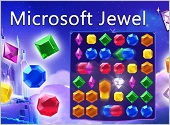- Home
- Better Memory
- Adhd
ADD / ADHD Affects Learning and Memory
Attention Deficit/Hyperactivity Disorder ( ADHD ), also known as Attention Deficit Disorder ( ADD ), is a condition that affects concentration, learning, and memory.
While adults can be affected, it is more commonly diagnosed in childen, especially boys.
Symptoms include hyperactivity, distractability, poor school performance, impulsive behavior, and problems focusing on tasks.
In recent years, ADD/ADHD has become a popular diagnosis. Some people feel doctors over diagnose it, and that some hyperactivity, especially in children, is normal.
There is no "cure", but certain diet and lifestyle changes can help reduce the symptoms.
ADD/ADHD and Memory
 | For children with this condition, distractability and problems with concentration usually lead to difficulties in school. It is easy to understand why.
In order to learn something new, we must first assimilate the information (take it in). We cannot learn or remember anything that has not entered our mind through conscious or unconscious means. |
ADD/ADHD Treatment
That is why doctors often prescribe pharmaceutical ADD/ADHD medications for these children. Stimulant drugs such as Ritalin, Concerta, and Adderall help them pay attention and concentrate. However, these medications are not without risks and side effects.
Fortunately there are some natural, non-pharmaceutical methods that may also help. Any activity that improves concentration should also help decrease the symptoms of ADD/ADHD.
For example, sufficient restful sleep each night helps clear the mind and consolidate new memories. Regular exercise, which stimulates blood flow and oxygen transport to the brain, can also help.
Playing brain games for a few minutes each day can help strengthen the neural pathways used when focusing and concentrating.
A healthy diet, including so-called brain foods as well as fish oil and a vitamin supplement can help insure the brain has all the nutrients it needs to function optimally.
Many of these non-drug methods are described on this website. Be sure to consult with a physician regarding the appropriate medical treatments for ADD/ADHD.
Published: 11/01/2009
Last Updated: 06/11/2020

New / Popular
Multiplayer
Board Games
Card & Tile
Concentration
Math / Memory
Puzzles A-M
Puzzles N-Z
Time Mgmt
Word Games
- Retro Flash -
No sign-up or log-in needed. Just go to a game page and start playing! ![]()
100 Free Puzzle Printables:
Sudoku / Word Search







